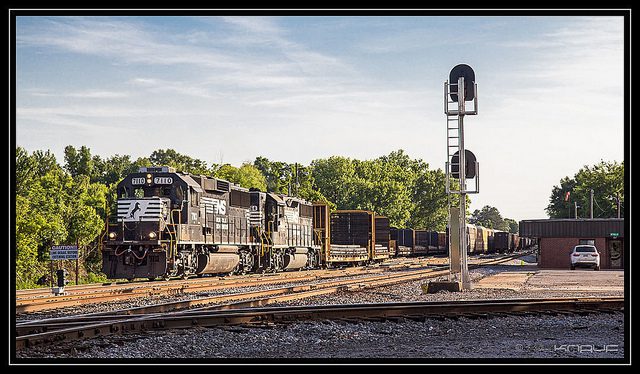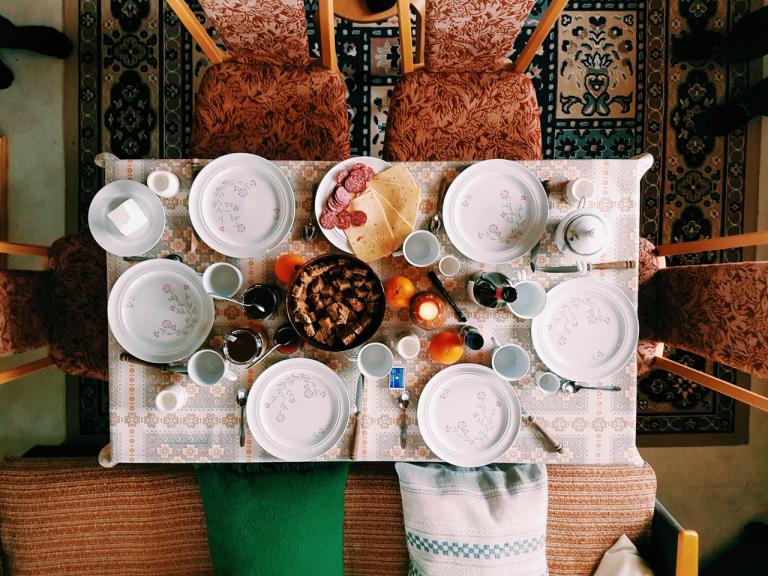“Have you ever heard of Thomasville and Jackson? Okay, it’s between them.” “I live about an hour north of Mobile. On the interstate? No, you get off the interstate and drive another hour.” “You know the town where Harper Lee grew up? It’s about thirty minutes from there.” “You ever driven from Mobile to Tuscaloosa? Then you went right through it.” “I’m from south Alabama. No, it’s still about two hours to the beach.” This is just a sampling of the myriad of ways I have used to try to tell people where to find Grove Hill, Alabama. Like many of the people who grew up in this county seat town I don’t live there anymore, but it remains the place that comes to my mind when I hear the word “home.”
No perfect places exist, but I could not be more thankful to have grown up in a small town. I have not always thought this. I went through my time of wishing I had grown up somewhere that did not have the racially-tinged history or resistance to change. My tastes at the time made me long to have grown up in a place more cosmopolitan and “forward-thinking.” The years have changed my mind though, because I learned lessons in this small Alabama town I don’t think I would have learned in a larger or seemingly more progressive place.
Learned How to Love My Neighbors
When I hear about my home I don’t think about the buildings and landmarks as much as I think about the people. Thoughts fill my mind with images of flesh and blood people who have histories and families. In my mind even now I can drive the streets and tell you the stories of the people who fill those homes. When there are large gatherings of people where I grew up, which usually center around a sporting event, church, or Wal-Mart, they don’t involve faceless crowds. Dotting these crowds are the faces of people I know and know about.
I now live in a suburb outside of Birmingham and few of the people I know here grew up in this area. My work frequently takes me closer to the city where I eat in restaurants or walk through hospitals where I encounter face after face I have never seen and do not know. Because of this lack of familiarity, there is a tendency to not treat people as real people who have real lives, hopes, dreams, histories, and hurts. Since I don’t know their name or anything about them, it becomes much easier to depersonalize them and act as if their only significance is how they might be of use to me in the moment. You cannot readily ignore the command to love your neighbor when you know a person, their history, and their family.
Learned How to be Humble
The famous American novel The Great Gatsby centers on mysterious and popular Jay Gatsby. Gatsby told the novel’s narrator Nick Caraway he grew up wealthy and was educated at Oxford because “all my ancestors were educated there.” The reader discovers later that Jay Gatsby did not grow up wealthy and was not educated at Oxford. He also took the name Jay Gatsby later in life having been named James Gatz at birth. Gatsby, who didn’t inherit his money but made it bootlegging during prohibition could build this kind of fictional life backstory for himself in a place like Long Island, but he could not have pulled it off in the rural North Dakota town where he was raised.
When you grow up in a small town you cannot pretend to be something you are not. Everyone knows better. Before I became a Christian and then a pastor I was a guy who did not have a heart to live for Jesus and did many things I am ashamed of now. None of these deeds went unnoticed or unreported by people I grew up around. This meant after I became a believer in Jesus I could not act as if I had always been a person who had his act together. When other people know you and your past, you get to stop pretending and performing and admit what you really are, a sinner who can only be right with God because of freely bestowed grace.
Learned How to Get Over Small Offenses
Any time you have more than one person living somewhere they will experience conflict on some level. When you live in a large place and run into conflict with people you can simply avoid going where they go. Ted Mosby, the central character in How I Met Your Mother, demonstrated this when he made a color coded map of Manhattan showing the places he could safely go without worrying about running into his ex-fiancee Stella. Ted would run into considerable difficulty making such a map in the town where I spent my growing up years.
In a small town you face two simple decisions when you get into conflict with a person, you can forgive them and get over it or you can grow bitter towards them. Avoidance is not one of your options. You will run into the person with whom you are angry at the grocery store, gas station, school, or the pew in front of you in church. After years of trying to unsuccessfully avoid people and/or nursing grudges, you come to the realization that you have to learn how to forgive people for the sake of your own soul. The alternative is to rot with anger from the inside out. After all, for the person who follows Jesus you know you have been forgiven a mountain of sins, so holding on to the molehill of sins against you is not an option.
You may have noticed the common theme in the things I learned growing up in a small town. Most of what growing up in small town taught me centered on how to interact with other people. I’m increasingly concerned that we are building a society where we shield ourselves from our neighbors. We spend most of our days looking down at our phones and then shut ourselves in our homes with the television on for the rest of the night. Political commentators note with increasing regularity how fragmented and divided our culture is. This type of division thrives when people don’t know their neighbors or the other people in their town. Disliking another person and believing things about them that simply aren’t true is much easier when you allow Rush Limbaugh or MSNBC to define them for you. Maybe we would all be better neighbors if we turned off our televisions and unplugged our internet so we could spend more time sitting on our front porches, walking around our neighborhoods, and getting to know the flesh and blood people who live around us.
Related Posts:
”How I Learned about Forgiveness”
”The Benefits of Slowing Down”
For Further Reading:
Alone Together by Sherry Turkle
Bowling Alone by Robert Putnam
Alone Together by Jay Pathak and Dave Runyon













